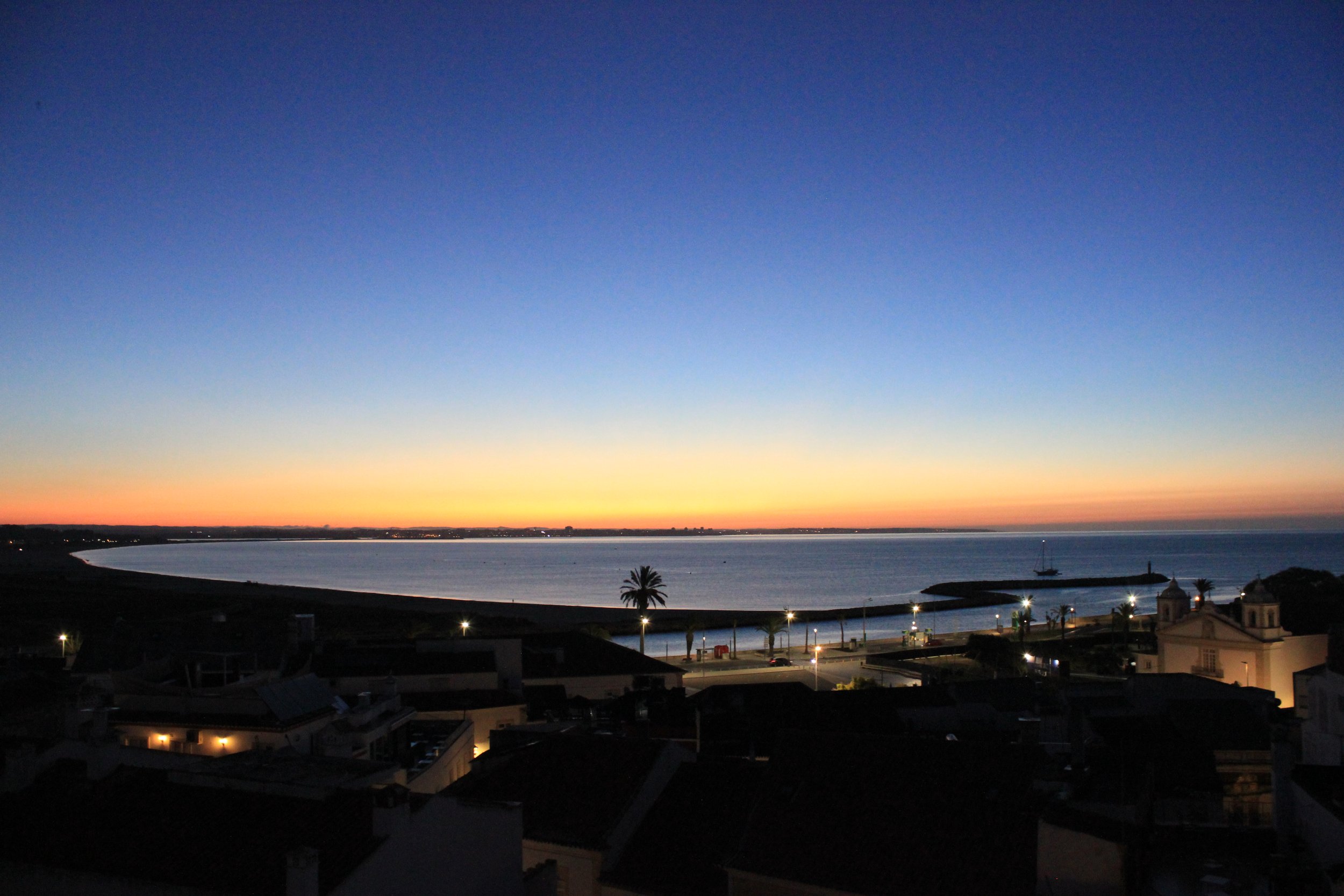How we lost our connection to our inner wisdom
Matt Birkhold
As I look out at the bay into which the first enslaved Africans were imported into Europe, I ask, “What would I have done?” “I am at the origins. The very place where history didn’t have to be the way it’s been,” I think to myself. “I’m at a place where people could have refused to buy other people but didn’t.” I pause and wonder, “What were they thinking? How did they feel? What motivated them?”
I text my partner a picture of the bay and tell her what it is. “Wow,” she replies. I feel tension in my body, an energy bubbling up. My eyes are teary.
I’ve made this pilgrimage to Lagos, Portugal because it’s the place where the transatlantic slave trade began in 1444, almost fifty years before Columbus landed in the Caribbean. It’s hallowed ground. Sacred. It’s also a resort town. I hear and see seagulls. I wonder if they might be the only common thing that the enslaved, the slavers, and I might have experienced here.
Within a few hours I learned that a building now occupies the site where the first Africans were bought and sold. I then learn that the square on which the building sits is also the site where African families were separated for the first time.
I wake up the next morning and watch the sunrise over the bay. “This is where Black families were first separated” circulates within me. As drunken Brits sing—still drunk from the night before and completely oblivious to the history of this place without which neither their whiteness nor capitalism could exist—I once again think, “It didn’t have to be this way. This is the point where things could have been different.”
The event itself was attended by curious people from Lagos and nearby towns. Their curiosity turned to horror as they watched African families get separated from each other and resist being separated. Children ran to be with their parents. Mothers tried to grab their children. The men tasked with separation beat them. In response, townspeople wept.
Gomes Eannes de Zurara paints a picture of pain, confusion, and resistance. “What heart could be so hard as not to be pierced with piteous feeling to see that company?” Africans were horrified and in pain. Townspeople were aghast. The men separating families were confused by the emotional difficulty of their jobs. Although Zurara doesn’t describe the resistance, he tells us that townspeople, “caused such a tumult as greatly to confuse those who directed the partition.”
Despite this resistance, the partition continued. The weeping and resistance of Africans and European townspeople was absorbed by an emerging system of trading enslaved Africans. Unprecedented wealth was the result of this system’s growth and Columbus’ journey to the New World. Growth quickly became a priority and, as more Africans were enslaved, European peasants were forced off their land into cities and factories to make industrial use of the products of enslaved Black labor. When European women refused to give birth to more workers, they were burned alive. When individuals spoke up, they were tortured or killed for doing so.
In a system so violent, it became dangerous to let our inner wisdom guide us and this forced ignorance of our inner wisdom became a foundation of patriarchal racial capitalism. As we became more accustomed to surviving under it, our inner wisdom gradually became harder to hear. Without it, we began to adapt to this system that values money more than life by prioritizing our material needs and neglecting our nonmaterial needs.
Lagos, 1444 can be usefully thought of as the place where the systemic disconnection from our inner wisdom began. According to Zuara’s description, those men responsible for the partition of Africans were confused about what to do. Instead of choosing to follow their inner-wisdom, they chose to follow the logic of individual gain. They weren’t the first Europeans to facilitate enslavement, brutality, horror, or pursue individual gain at the expense of others. However, the choices made by these specific Europeans in this specific place and time had implications similar choices made at previous times did not. Because this specific form of slavery was racial and occurred during a major social and economic crisis in Europe, it became a building block of a new economy and world.
It is easy to be overwhelmed by the trauma of history. However, as Baldwin knew, understanding it can free us from being trapped by it. When we locate ourselves in systems and history, history becomes the culmination of human choices coalesced in patterns. From within the logic of a system, history is not supernatural, deterministic, or just the way people or things are. Instead, it becomes the patterns of choices that people make in relationship to the systems in which they live. Seeing history in systemic context illustrates human power to make choices and shape reality. By locating ourselves in systems and history, we empower ourselves to see that by making collective choices rooted in the logic of inner-wisdom, we can create patterns that coalesce in systems that support us in making our material and nonmaterial needs equally important.

